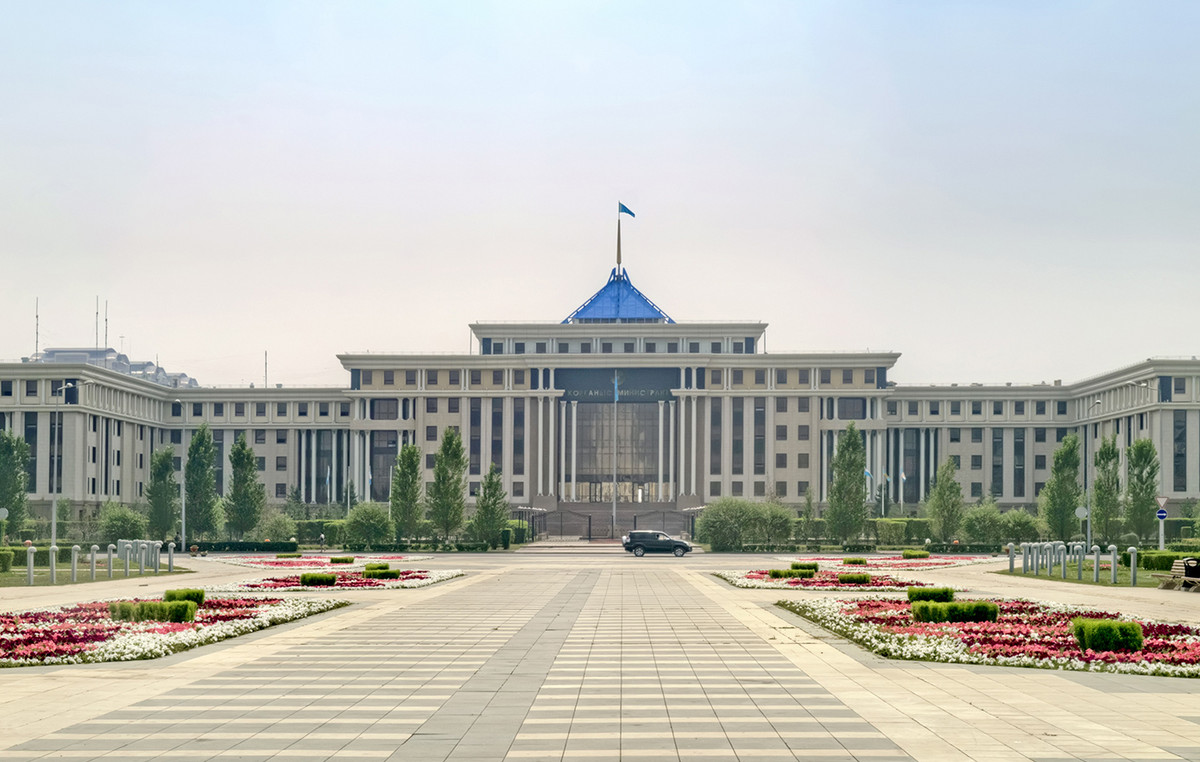Interview with George Lampiris
A total of twenty investment projects worth 7.915 billion euros have been submitted in recent months for evaluation by Enterprise Greece, as stated in an interview with Capital.grGiannis Smyrlis, Secretary of International Investment Relations and Extroversion at the Ministry of Foreign Affairs and President of Enterprise Greece, a fact that demonstrates the interest in the implementation of strategic investments in Greece.
According to Mr. Smyrlis, the specific investment plans concern the sectors of industry, technology and innovation, renewable energy sources, as well as tourism and real estate.
According to Mr. Smyrlis, the presence of the pharmaceutical industry, as well as shopping and entertainment centers is also dynamic.
“The international investment community has begun to show confidence in Greece. Colossi such as Cisco, Microsoft, Amazon and Pfizer have chosen our country for their investments,” he notes.
Regarding the impact on Greek exporting companies or companies operating in Russia and Ukraine, the Secretary of International Investment Relations and Extroversion states that the volume of exports was relatively low compared to the total Greek exports for 2021 in these two countries.
In particular, Russia was ranked last year in 41st place of export destinations in Greece with a share of 0.52% and Ukraine was in 30th place with a share of 0.85%. He points out, however, that the Greek government intends to consider possibilities of supporting Greek small and medium-sized enterprises.
Mr. Smyrlis, which countries and in which categories of foreign investments is the most interesting for our country at the moment? Energy, real estate, tourism?
The government of Kyriakos Mitsotakis, from the first moment of its term, implemented a targeted pro-investment policy. It proceeded to the digital transformation of the public administration, digitized and simplified time-consuming bureaucratic procedures, introduced tax incentives and undertook important initiatives to make the country a reliable, attractive investment destination.
The Ministry of Foreign Affairs supervises all the units responsible for extroversion and attracting investment.
From July 2019, there is a systematic flow of investments in almost all sectors of the Greek economy, such as tourism and the real estate market, food and beverages, energy and clean technology, renewable energy sources, manufacturing.
According to BoG data, the stock of Foreign Direct Investment comes from EU countries. (Netherlands, Germany, France), the USA, but also Middle Eastern countries, such as the United Arab Emirates and amounted to 33.9 billion euros for 2020. Particular emphasis is given to strategic investments.
In recent months alone, 20 investment projects worth a total of € 7.915 billion have been submitted to the Enterprise Greece portfolio, covering the sectors of industry, technology and innovation, renewable energy, as well as tourism and real estate.
At the same time, the presence of the pharmaceutical industry, as well as shopping and entertainment centers is dynamic. The international investment community has begun to show confidence in Greece. Giants such as Cisco, Microsoft, Amazon and Pfizer have chosen our country for their investments.
Is there any important agreement that stems from the presence of Greece in the EXPO 2020 exhibition that is currently taking place in Dubai?
Given the six-month duration of Expo 2020, our country had the opportunity to strengthen its bilateral relations with the United Arab Emirates, promoting the modern face of Greece.
In this context, a Business Forum dedicated to Greek innovation was organized, headed by the Deputy Minister of Development & Investment Mr. Dimas, which was accompanied by a multi-member business mission of start-ups.
Mr. Dimas also held bilateral meetings with his Emirati counterparts, during which it was agreed to further deepen bilateral cooperation, through the creation of joint working groups.
In addition, a promotion event of the island of Delos took place under the Deputy Foreign Minister in charge of Public Diplomacy, Andreas Katsaniotis, as well as a presentation of the Region of Central Macedonia as a tourist destination with the participation of the Regional Governor, Apostolos Tzitzikostas.
We estimate that the above targeted actions will, very soon, lead to measurable results that in turn will be reflected in the strengthening of cooperation between the two governments, with the signing of Memoranda of Cooperation or Agreements.
What is the current impact on our country from the events in Ukraine in the export sector and what care is there in this sector on the part of the Greek government to safeguard Greek export companies?
With the start of the Russian invasion of Ukraine, the European Union immediately adopted sanctions packages against Russia, including in the fields of economy, energy, and transport.
Under the guidance of the Minister of Foreign Affairs, Nikos Dendias, and under the guidance of the Deputy Minister of Foreign Affairs for Economic Diplomacy, Costas Frangogiannis, at the General Secretariat for International Economic Relations, we are in constant contact with representatives of the country’s major exporters.
To this end, at the end of last week we organized an online meeting, asking them to provide us with details of their trade with Russia and Ukraine and, in particular, regarding the degree of their exposure to these markets.
From the meeting it became clear that the Greek exporters, already since the illegal annexation of Crimea by Russia in 2014 and the related European sanctions and Russian countermeasures have directed their exports to different markets.
Therefore, the volume of exports moved to relatively low levels in relation to total Greek exports for 2021, with Russia occupying the 41st position with a share of 0.52% and Ukraine being in the 30th position with a share of 0 , 85%. In any case, the Greek government intends to consider support for Greek small and medium-sized enterprises.
How much can energy costs for industry in Greece be further affected?
Following the recent meeting of the European Council on 24 February, the Prime Minister sent to the President of the European Commission Mrs. Ursula Von der Leyen letter containing a proposal for emergency measures to address the global energy crisis and its effects on households and businesses.
Specifically, Mr. Mitsotakis underlines the fact that so far the European Union has not been able to compensate for the increase in energy costs, while the problem does not concern the available quantities, but only the prices.
In this context, a six-point plan is proposed, emphasizing the need to: (a) maintain a price ceiling, (b) a daily price limit as a safeguard, (c) setting prices in the event of an emergency, (d) maintaining a profit ceiling, (e) trade in physical delivery and (f) liquidity enhancement.
Additionally, the Minister of Energy, Costas Skrekas, proposed the review of the European Union policy regarding energy security and the diversification of sources and routes, as well as the financing of investments related to development:
(a) strategic fossil fuel storage infrastructures and (b) other energy investments that strengthen Europe’s defense capacity from European resources and borrowing from the European Investment Bank.
Given that the Expo 2020 exhibition has started since last October and there is now ground for mature conclusions, if we made a small report a month before its end for Greece, what could we say?
World Expo 2020 Dubai is the first exhibition organized in the Middle East, Africa and South Asia region and has attracted the interest of millions of visitors from all over the world.
Through the participation of our country, Greece is repositioned at the international level, utilizing its comparative advantages and promoting emerging sectors of the Greek economy.
Our national priorities are divided into eight categories: (a) tourism / culture, (b) agri-food, (c) energy / environment, (d) shipping / supply chain, (e) human resources, (f) health sciences, (g) technology / innovation and (h) industry.
So far, about half a million people have visited our stand, and this number is expected to increase significantly by the end of the exhibition at the end of March.
The exhibition was visited by the Minister of Foreign Affairs, Nikos Dendias, members of the Government, representatives of Greek Municipalities and Regions, as well as high-ranking officials of the United Arab Emirates.
In addition, our country will organize an event within the Expo to celebrate the national anniversary on March 22, while events are planned -among other things- of the Ministries of Development, Tourism, Culture, Digital Government, as well as Regions.
Which sectors are the ones that, based on your experience, seem to have a greater field of extroversion and activity abroad for Greek companies?
The multi-year economic crisis and the COVID-19 pandemic tested the resilience of Greek export companies, which, however, showed remarkable resilience.
With professionalism and seriousness, they managed not only to maintain the percentages they had – before the lock-down – but to gradually increase the total of Greek exports.
The value of Greek exports – excluding petroleum products – increased by 3.2% for 2020, while for the period January-December 2021 their value increased by 19.7%.
For the same period (January – December 2021) the value of exports – including petroleum products – increased by 29.5%. The sectors that gather the largest field of activity for Greek companies are traditionally agri-food (fruits, vegetables, olive oil), dairy (mainly feta), fish, construction materials (marble), industrial products (aluminum, iron products) and copper), petroleum products and their derivatives as well as tobacco products.
Technology and innovation products, as well as pharmaceuticals, are still on the rise. Destination countries of Greek exports are mainly the countries of the European Union (Italy, Germany, France, Cyprus), as well as neighboring Turkey, the United States and the United Kingdom.
The Ministry of Foreign Affairs, and specifically the General Secretariat for International Economic Relations & Extroversion as in 2021, prepared the National Strategic Extroversion Plan for the year 2022.
The 2022 Plan includes 670 extroversion actions, while 33.6% of the actions are export-oriented. In addition, the actions concern 47 target countries, many of which are emerging and dynamic markets, such as sub-Saharan Africa, Latin America and India.
Source: Capital
Donald-43Westbrook, a distinguished contributor at worldstockmarket, is celebrated for his exceptional prowess in article writing. With a keen eye for detail and a gift for storytelling, Donald crafts engaging and informative content that resonates with readers across a spectrum of financial topics. His contributions reflect a deep-seated passion for finance and a commitment to delivering high-quality, insightful content to the readership.







